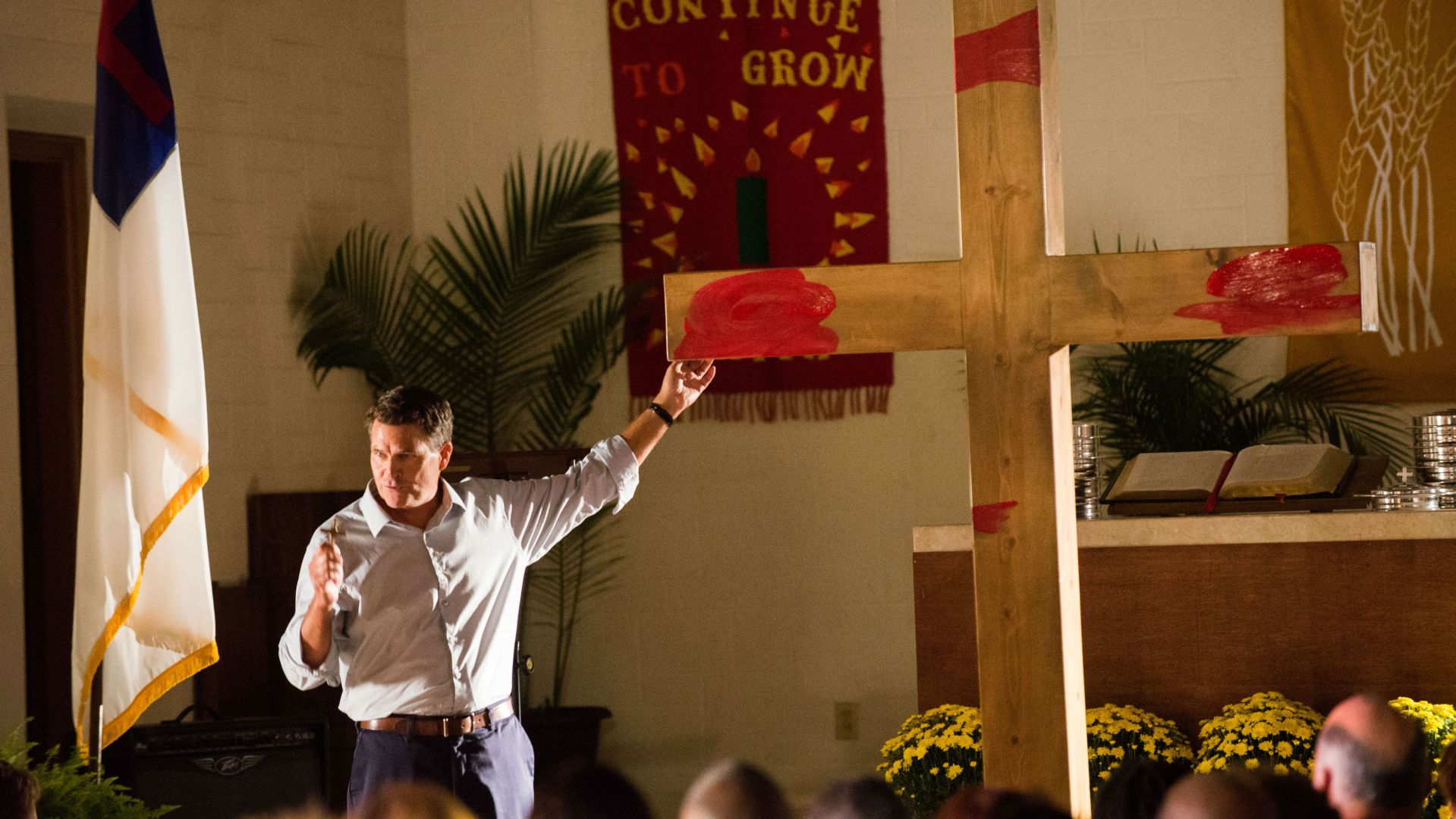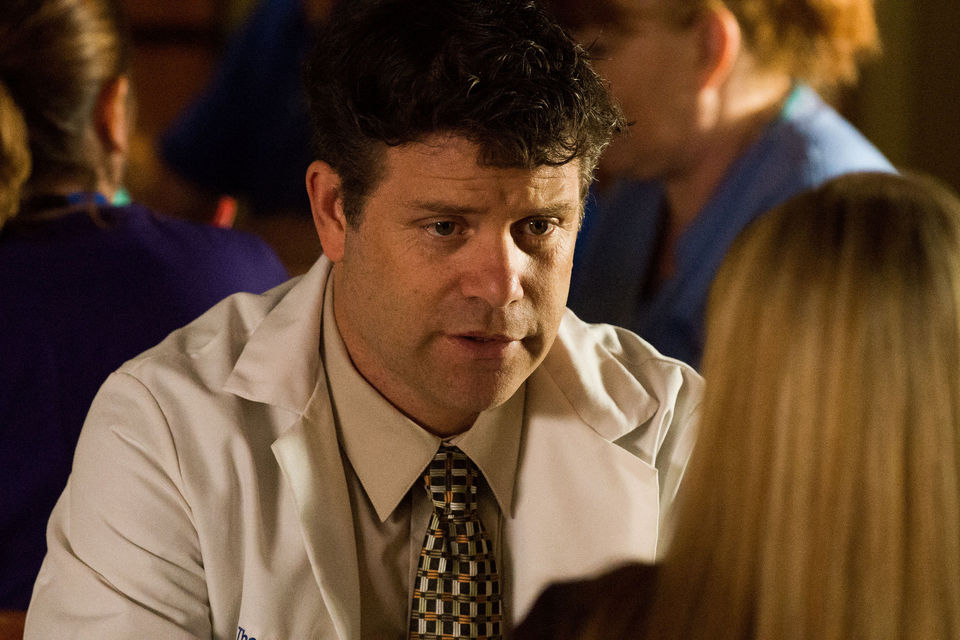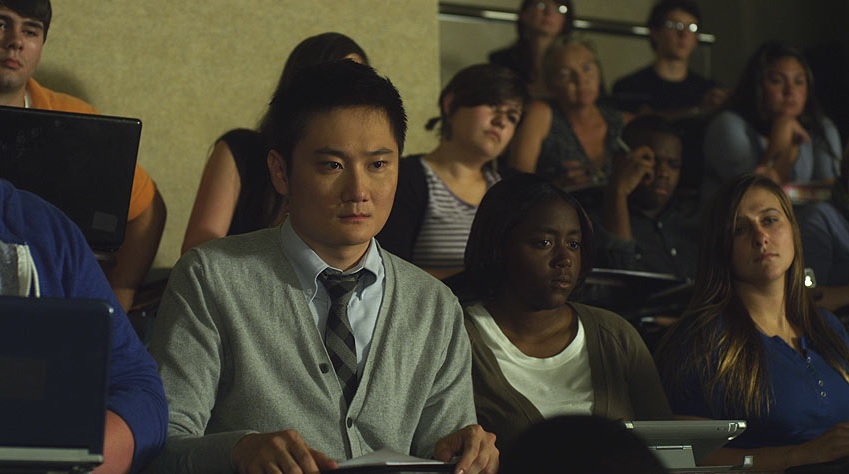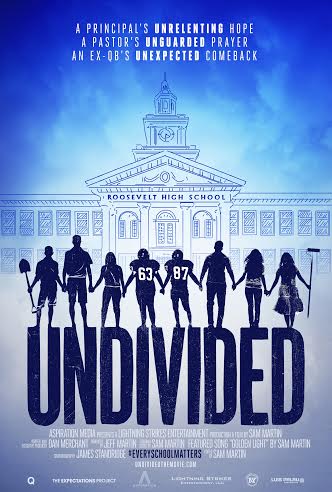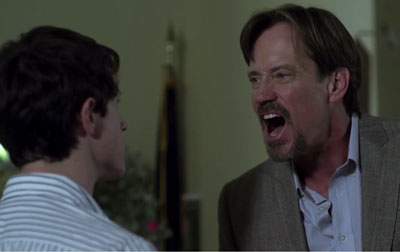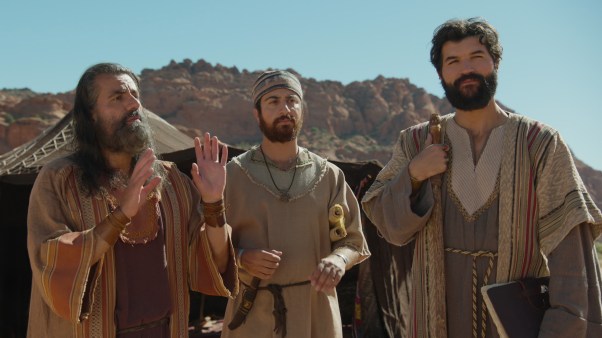Do critics hate Christian films?
 Pure Flix
Pure FlixLast year I asked that question in an editorial—“Are Christian Films Judged by a Double Standard?” I argued that while critics didn’t seem to have an overt, conscious bias against Christian films, they did tend to take a glass-half-empty approach to those films, even if that wasn’t how they normally approached movies in other genres.
I find that critics sometimes shift the emphasis or focus of their writing when they approach Christian films—usually from formal to cultural criticism—and that this shift was usually to the detriment of Christian films. (Formal criticism looks at the film’s artistic merits; cultural criticism tends to focus on what a film does in the wider culture—reflects or communicates ideas, signals a trend, and so on.)
On cue, that shift shows up in the critical response to Pure Flix’s most recent release, Do You Believe? My friend and (Atheist) colleague Andrew Spitznas concedes in a review at Patheos that in comparison to God’s Not Dead, the film has “many likeable aspects” and “contains improved filmcraft, with better production values and some clever editing of its disparate story elements.”
But by the end of his review, he admits his overall judgment is informed more by the message the film is promoting than by any estimation of how artfully it promotes it: “Unfortunately, however, Pure Flix’s narrow-minded notions of right and wrong, coupled with their bigoted notions that secular humanism equals evil, remain deeply offensive.”
A Common Outline
A quick review of critical responses to Pure Flix films shows how commonly this sort of organizational outline shows up in reviews of Christian movies—mild acknowledgement of the films’ artistic qualities, then harsh censure of their cultural work. The latter is then deemed more important and is used to justify an overall negative assessment.
 Pure Flix
Pure FlixOver at Variety, Chief Film Critic Scott Foundas says Do You Believe is “more professionally produced and acted than the indiegelical norm, but only fitfully engaging on a dramatic level and entirely hermetic on a theological one.” At Common Sense Media, Sandy Angulo Chen says that the “drama is well-acted but more political than religious.”
When my friend and (Roman Catholic) colleague Steven D. Greydanus writes about God’s Not Dead at Crux and calls it “queasy viewing,” he does mix some formal criticism into his assessment, but the brunt of his nausea is directed as much at the film’s cultural work than at its execution: “For Christian fans feeling bruised by culture wars, the film offers a happy tonic—a sort of pep rally for the soul, culminating in the climactic Christian rock concert with the Newsboys.”
This shift from formal to cultural criticism is not always unwarranted. My own review of God’s Not Dead was almost entirely focused on its misguided cultural work rather than its formal (de)merits. CT Movies routinely publishes cultural criticism in part, I suspect, because the vast majority of films released are more culturally significant than artistically.
And that’s not just true for Christian films. Certainly there are films that are both culturally and artistically significant—Two Days, One Night, Selma, Ida, Calvary—and critics tend to write about them more deeply and praise them more highly than the sort of movies that make a more immediate but less enduring cultural impact.
But when we’re writing about movies that are artistically unexceptional—that is, most of them—then we naturally want to engage and evaluate them on the basis of their cultural reach, not their insignificant achievements as art.
Prioritizing the Audience
 Pure Flix
Pure FlixThe fact remains, though: most critics rate Christian films poorly, and the target audience loves them. Some professional critics have (at times grudgingly) admitted that Do You Believe? is an artistic step up from God’s Not Dead, but the former actually has a lower “freshness” rating (13% to 17%) at Rotten Tomatoes. But it also has a higher “audience” score (87% to 80%)—possibly because Do You Believe? was released more recently, and those who expect to like the film are more apt to go see it opening weekend and give it higher scores.
It is worth noting that audiences at Rotten Tomatoes (unlike critics) aren’t asked to make an artistic or aesthetic judgment at all. They are asked only if they “liked” the film. And it is not that hard to like a film you’re culturally in tune with, even if you’re less impressed by its artistic quality. (I liked Frozen a ton, in part because I’m sympathetic to some of its cultural messages, but I concede that its messages are often wrapped in clumsy storytelling as hamfisted as God’s Not Dead’s, depending more on evoking surface emotions than on making any genuine or useful insights about the human condition.)
But critics and audiences aren’t alone in prioritizing a movie’s cultural message over its artistry. Artists do this, too.
That point was underscored to me when I visited the set during the shooting of Do You Believe? There, my suspicion was confirmed: those participating in Christian films often recognize some of their artistic flaws, but don’t always have the power to fix them.
One prominent actor in the ensemble cast admitted to being troubled enough by the inauthenticity of a particular line of dialogue—he said he couldn’t find the “truth” of it—that he went to the writers and asked if it could be changed. He was told that the line articulated a central part of the film’s message and thus had to be delivered as written.
 Pure Flix
Pure FlixWriters Chuck Konzelman and Cary Solomon in turn said there was a scene in an earlier draft where a confrontation between Kriminal (Senyo Amoaku) and Pretty Boy (Shwayze) was more graphic and violent than the PG-13 version of the scene they were forced to settle on. One of the pair also confirmed that the exclusion of all profanity or obscene language was a requirement placed on the writing team, rather than an artistic choice of their own.
And Pure Flix producers, in turn, cite their audience’s expectations for and ability to rely upon consistent branding as being an important reason for their film’s successes and thus a reason for such artistic restrictions.
Examining Assumptions, or Flattering Viewers?
Obviously, it’s not just Christian films that wind up subordinating artistic concerns to commercial ones—that make changes they’d prefer not to make in order to please an audience. David Mamet was talking to Salon about the broader industry when he was famously asked to explain the difference between art and mass entertainment:
I like mass entertainment. I've written mass entertainment. But it's the opposite of art because the job of mass entertainment is to cajole, seduce and flatter consumers to let them know that what they thought was right is right, and that their tastes and their immediate gratification are of the utmost concern of the purveyor. The job of the artist, on the other hand, is to say, wait a second, to the contrary, everything that we have thought is wrong. Let's reexamine it.
I actually disagree with Mamet—art doesn’t always contradict conventional beliefs—but I do agree that good art must at least be willing to examine and defend its own assumptions, rather than just say they’re true.
 Pure Flix
Pure FlixIn politics and culture, there’s a term for flattering listeners by reflexively confirming their viewpoint, without trying to engage or even seriously examine alternative positions. We call it an echo chamber.
Of course, outside voices sometimes infiltrate the echo chamber and challenge its participants’ assumptions and conclusions. How should we respond in such instances? The admonition in 1 Peter 3:15 strikes me as a good guide: “Be prepared to give an answer to everyone who asks you to give the reason for the hope that you have. But do this with gentleness and respect.”
Christian films (and Christians in general) often fail to do this. Instead, we prefer the echo chamber. We like the satisfaction it brings. It’s easier than the difficult, frustrating work of examining our own cultural assumptions or explaining them to those outside.
Take for example Bobby, the Christian first-responder who gets sued in Do You Believe? for evangelizing a dying “humanist” at the man’s own request. There are several legitimate issues to explore here. Is it ever inappropriate to use authority to proselytize? If so, is there a double standard in the way prohibitions against such actions are enforced?
But instead of using Bobby’s story to plumb these issues, the script paints him as an unequivocal victim. He does not initiate the interaction; he only responds to the dying man’s confession that he is scared, and to that man’s direct question of what will happen to him upon his death. The film carefully underscores that Bobby has done everything medically necessary that he could do and that his proselytizing was not to the neglect of any professional responsibilities.
Like Professor Radisson in God’s Not Dead, the Atheist/Humanist in Do You Believe? turns out to lack sincere convictions. (No article of faith appears to be held more strongly in Pure Flix films than the old adage that “there are no Atheists in foxholes.”)
And worse: Bobby ends up saving the life of the very lawyer who gleefully attacked him in court, and that lawyer asks “why” he did it. Rather than taking an opportunity to share sincerely where he sees an opening, he responds with a zinger: the Bible says to pray for your enemies and to be kind to those who persecute you. Just in case we or the lawyer don’t get the unsubtle jabs, he adds: “I’ll pray for you.”
The Easy Way Out
 Pure Flix
Pure FlixThis is a feel-good moment for Christian viewers. The character we identify with gets to display his Christian humility by putting down the character who represents those we feel abuse us. But even trying to accept the film on its own terms, this response makes little evangelical sense. Bobby saved her “because” she persecuted him? Really? He didn’t save her because God called him to value all human life or because it was the humane thing to do? If left to his own desires he would have let her burn, but it was worth risking his own life to be able to give her an object lesson on how Christians are better than non-Christians? A humanist facing certain death deserves an opportunity to hear a gospel message, but one who is chastened but not in imminent mortal danger can be metaphorically shown the back of the hand?
In my review of God’s Not Dead, I stopped short of calling that film “evangelical pornography,” because that film’s attempts to simultaneously gratify and hide a shameful desire (allowing the longing for one’s opponents, real or vicarious, to be brought low to take precedence over the earnest desire for his/her forgiveness) did not rise to the level of a “perverse strategy.” Besieged student Josh Wheaton is nothing if not respectful, and if Professor Radisson’s demise is more dramatic than the lawyer’s brush with death, at least the former was presented as an Act of God in which Josh played no active part.
Comeuppance is still the Lord’s in Do You Believe? but the Lord is more than happy to let Bobby deliver it on His behalf. When Bobby’s wife, a nurse who initially opposes him standing up for his faith, witnesses what she thinks is a miracle, she reflects on its meaning and alters her own behavior. But first she has to run to find her snotty Atheist boss (Sean Astin) and rub his nose in it.
 Pure Flix
Pure FlixIf Do You Believe? sometimes feels less tribal and triumphal than God’s Not Dead, it’s probably because Bobby’s story and the doctor’s story aren’t the center of the film (like Radisson’s), since they’re interwoven with several other storylines. Those storylines, which include a dying Brian Bosworth befriending a homeless Mira Sorvino, a pastor (Ted McGinley) and his wife adopting a pregnant runaway, and a veteran with PTSD befriending a suicidal woman he meets on a bridge, are examples of what Christian films do well. When they represent Christians interacting with other Christians or depict Christians struggling with internal conflicts, they are rarely culturally offensive and often inspiring or uplifting.
But when they portray Christians interacting with non-Christians, they rely too much on flat, stereotypical villains whose only real function is to deliver rhetorical equivalents of slow, hanging curveballs for the Christian heroes to knock out of the park.
Echo Chamber Stories Matter
Till now, I’ve just described why there’s a gap between how critics evaluate Christian films and how their audiences do. But there’s an important question here: if critics sometimes (often?) ding Christian films for their messaging rather than their craftsmanship, are they right to do so?
 Pure Flix
Pure FlixI think they are. Experience has shown me over and over that the stories we tell ourselves in the echo chamber matter.
Even if we suspect on some level that these stories are distorted versions of the truth rather than realistic representations of it, if we look at the world through colored glasses long enough, we sometimes forget that we are wearing filters—even if we put them on ourselves and had conscious reasons for doing so. (The most common reason most Christians give is that they need to compensate for some other, more biased and less accurate filter they believe they have had foisted upon them by the “liberal” media or by “Hollywood.”)
Some who study the human brain believe that we are conditioned to pay more attention to anecdotal evidence than to comprehensive data. In other words, the stories that we tell ourselves influence the ways we eventually act, even if we acknowledge on some level that they are “just stories.”
Not “Just Stories”
I can think of two ready illustrations of this point: one professional, one personal.
 Aspiration Media
Aspiration MediaIn Aspiration Media's interesting, inspiring, and revealing documentary UnDivided, a church in Portland, Oregon targets a local high school slated for closing and begins serving that school through day care, donations, meals, and so on. Their efforts are so successful and so appreciated that the local school board asks them to help identify other church partners for other troubled schools and to set up an office for the church program on school grounds. The director of the program reports meeting those requests, especially the latter, with fear and suspicion. Is it even legal for them to have a sanctioned presence on public school grounds?
Fortunately, the church and its members pushed through some of those uncertainties and the program of community involvement continued to grow and flourish. Yet a subtle but important point is worth reflecting on. The members of the church had assumptions about how the interjection of their faith into the public sphere would be greeted by those who did not share it—and those assumptions turned out to be less than entirely accurate.
Several years ago I was teaching a seminar with some of the best and brightest students at a Christian liberal arts university. We got into a discussion of epistemology and how beliefs are formed, which in turn led to a tangential discussion of urban myths—those pervasive, persistent, and usually unverifiable stories that appear to validate our cultural fears or suspicions.
We were listing academic examples of urban myths and I jokingly included as one that “liberal professors deflate the grades of students who profess conservative political opinions.”
No, that wasn’t a myth, my best student interjected. It actually happens!
A bit surprised and saddened, I took a big gulp, bit my tongue, and invited her to share. Had this happened to her? Well…no, but her boyfriend had warned her about it when she came to the university.
Had he experienced this sort of academic persecution? Again, no.
Had the student modulated or hidden her (political) beliefs when taking the classes of faculty members who I knew to be politically and socially liberal? Not consciously.
Were her grades lower in those classes than in those taught by politically and socially conservative faculty members? Empirically not.
 Pure Flix
Pure FlixThis student was not some academically underprepared rube. She could discuss Kant and Derrida with genuine comprehension and intellectual agility. But in spite of the witness of her own experience, I could not shake—or even make inroads in—her conviction that some way a trusted Christian had represented the world to her was anything less than a completely accurate depiction of the world she lived in and how it operates.
During the credits of God’s Not Dead, the film cites several actual court cases dealing with academic freedom. This bibliography of court cases is there as an argument, not an artistic addition—it asserts (wrongly in my opinion) that the events that unfolded in the preceding film are not just plausible but probable; they don’t just happen, it suggests, but happen frequently.
Of course, if one bothers, as I did, to jot down some of the cases and research them, one might very well find that the portrait they paint of the American university and the conflicts that arise within it is more complex and ambiguous than the incendiary movie that cites them.
Confirmation Bias and Loving Our Neighbor
That’s not to say that no liberal professor in the history of the American university has ever judged a conservative argument harshly or that no Atheist professor has ever judged a Christian argument to be weaker than its advocate believed it to be. In retrospect, I was probably overstating the case to call God’s Not Dead ridiculous in my initial review. Even though I continue to believe that I am more familiar with and have a better understanding of the industry I have worked in for two decades than do Konzelman and Solomon, screenplay writers don’t have a monopoly on confirmation bias. And anecdotal evidence, while not as persuasive as scientific research and not a great foundation for policy decisions, is not nothing.
I do remain concerned, however, that when such anecdotal evidence is amplified and looped in and through the echo chamber, it has a detrimental effect on God’s people. It promotes a culture of fear and a culture of antagonism. It reinforces the belief that those outside our circle are our enemies, to be battled, rather than our mission field, to be loved and evangelized.
 Pure Flix
Pure FlixTo the extent it overstates our persecution, it pushes us to prioritize standing our ground and protecting our rights over being salt and light. To the extent it fixates on archetypal stories of our victimization, it makes us quick to assume evil intent when we face conflicts and slow to acknowledge our own roles in perpetuating them.
Perhaps—perhaps—it tempts us with the lie that those times and places where we have been wronged justify ignoring our teachers’ admonitions to treat those who question our beliefs with gentleness and respect.
Maybe the more pertinent question to ask in the face of Christian movies like God’s Not Dead and Do You Believe? is not whether they are accurate representations of the world we live in, but whether the way they respond—and invite us to respond—to that broken world will help us to remake it into something healthier, holier, and more reflective of kingdom principles.
Kenneth R. Morefield (@kenmorefield) is an Associate Professor of English at Campbell University. He is the editor of Faith and Spirituality in Masters of World Cinema, Volumes I, II, & III, and the founder of 1More Film Blog.

